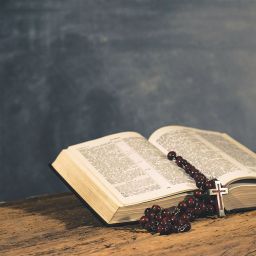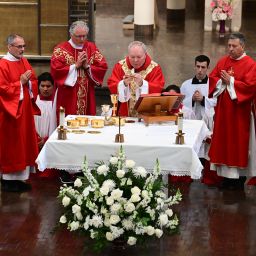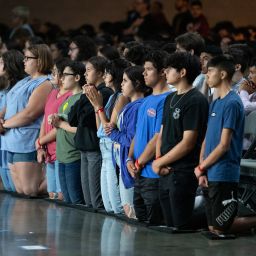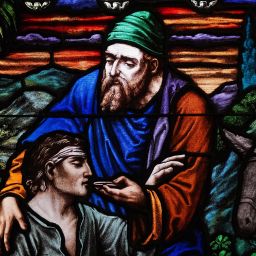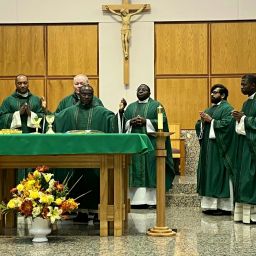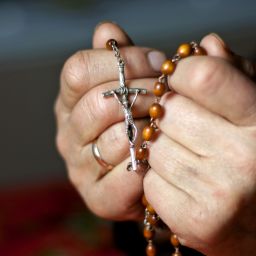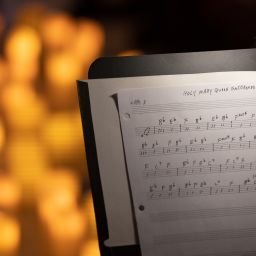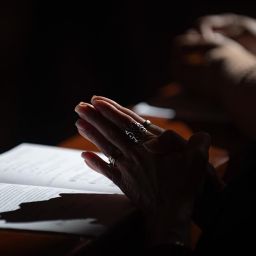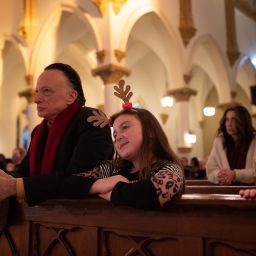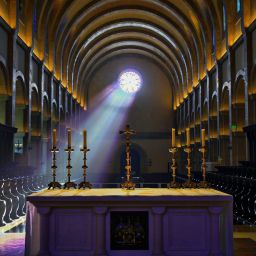By Father Jacob Dankasa
Special to The Texas Catholic
At the beginning of every year, we make resolutions about how we want to live out the new year. Of course, in the coming days we will hear more about new year’s resolutions from many different people. But I thought that before I make any resolutions for the new year, I would love to reflect on how this year has been. One of my goals when this year began was to bring more balance into my busy life and to create a stronger harmony between the different aspects of my life — as a person, a priest, and a pastor. In trying to be all these things and remain focused at the same time, I know I have to do a lot of balancing.
The journey to discovering and maintaining balance — especially between work and rest, giving and receiving, striving and surrendering — is a long, slow one, and the goal is hard to reach. Balance isn’t just about dividing time evenly; it’s also about aligning life with what truly matters and creating harmony within oneself and with one’s surroundings. For those of us who are priests and pastors, our roles create a constant journey of seeking and maintaining balance — a balance between the demands of ministry and the care of our own souls, between serving others and nurturing our own relationship with God. Balance in this vocation is not simply about managing time; it is about embodying Christ’s peace in all aspects of our lives.
As the year unfolded, I realized that balance is not an end point; it is a process that is dynamic and fluid. There were moments this year when things seemed to be perfectly aligned and moments when things seemed overwhelming. Through these moments, I’ve learned that balance requires awareness, intention, and, most importantly, grace. And through the challenges and graces of priestly life, I have come to understand balance as a process of discernment that is ongoing in my life.
A very important point in my quest for balance this year has been a focus on self-care. Balance begins with self-care. Self-care here includes the need for rest, reflection, and rejuvenation. Each time I have paid attention to these three areas and have maintained proper self-care, I have realized that I became even more active in other areas of my life. The harmony method that I learned this year that helps me in my pursuit of balance is the concept of caring for the caregiver. As priests, we are caregivers. We serve. And service is grace, not strength. Whether I am celebrating the sacraments, counseling parishioners, or simply being present in their lives, I’ve seen how balance comes from loving service rooted in God’s grace, not from my own strength. Therefore, I am especially conscious of the need to understand that to serve others effectively, we must care for ourselves physically, emotionally, and spiritually. This means that service and rest are two essentials. In this sense, rest does not become a luxury. It is a necessity for avoiding burnout.
As humans, there are a few important points we must recognize and practice to create balance in our lives. The first is knowing how to prioritize. It is important to understand what really deserves our attention and energy. When I was searching for balance this year, I found out very quickly that not everything can (or should) be on top of the list. Therefore, I struggled to focus on letting go of unnecessary commitments to make room for what truly nourishes me. In whatever facet of life you find yourself, creating a balance to serve and to live is very important. This means that there is a time to say yes and a time to say no in order to achieve true harmony in life. Setting boundaries that will aid you in choosing to say either yes or no might be challenging, but it is necessary. Saying no to others or to certain things means sometimes saying yes to your own peace and well-being.
Looking at balance with a spiritual lens, finding balance can teach us to trust the ebb and flow of life. For us to create a spiritually balanced life, we must learn to surrender control and to trust that there is a time for everything, a time to take action and a time to remain still, a time to hold on and a time to let go (Ecclesiastes. 3:1-8). Our spiritual life and deep-rooted faith can help us to pass through the highs and lows of life with joyful harmony.
Through this year, I’ve been reminded that balance flows from living in alignment with God’s will. And there were certainly moments of imbalance! But as I have pursued balance and harmony, particularly in my work and ministry this year, I have learned that creating balance involves centering on the Eucharist and keeping Christ at the heart of all I do through frequent prayer and reflection. I have learned that balance involves delegating with trust, that is, empowering lay leaders to share in the work of the Church. I have learned that balance involves cultivating the need for rest, which means creating time for spiritual retreats, exercise, and personal renewal to sustain my ministry for the long term. This year has been a reminder that my vocation is not about doing everything; it is about faithfully responding to God’s call.
As you read this article, and as we look forward to the coming year, I would invite you to reflect deeply on how you as an individual can develop and maintain a greater sense of balance and harmony in your life. It takes both the spiritual and the psychological to attain proper balance and harmony. Achieving balance may involve making time for meditation and reflection; it may demand intentionality in creating personal time-outs to recharge our spirits. We must also humbly understand our imperfections and recognize that seeking balance, imperfect though the results may be, is a step toward living in harmony with Christ, trusting that He will provide for us what we cannot provide for ourselves. Working toward balance is the journey, not the destination. Balance helps us to reconcile what we deeply desire with what the world actually throws at us. But ultimately we must allow God to help us in our human search for balance. Without Him, we can do nothing (John 15.5).
Father Jacob Dankasa is the pastor of Holy Family of Nazareth Catholic Church in Irving.



